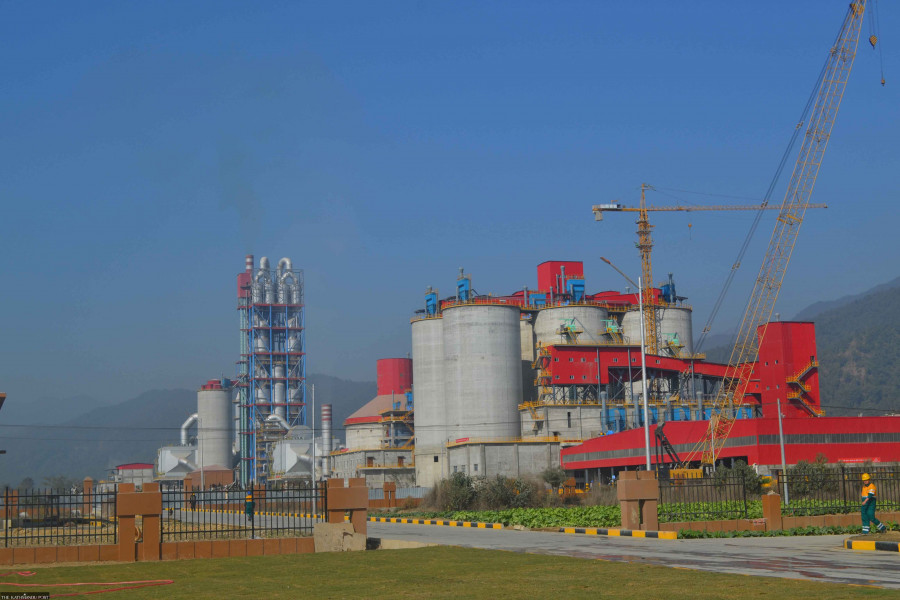
The government has sharply lowered the minimum threshold for foreign direct investment (FDI) in a bid to lure capital as a funding shortage holds up infrastructure projects.
The Cabinet on Friday slashed the investment minimum by 60 percent to Rs20 million, which the government says will attract small foreign investors too.
Nepal's economy continues to suffer from a series of destabilising shocks. The Covid-19 pandemic and then the Russia-Ukraine war-induced inflation have weighed down economic performance.
In June 2019, over protests from the private sector, the government had jacked up the minimum limit for FDI from Rs5 million to Rs50 million.
Gunakar Bhatta, spokesperson for Nepal Rastra Bank, said bringing down the minimum would encourage foreign small investors to bring technology into the small sector.
“The minimum investment requirement of Rs50 million was a huge amount for foreign investors looking to invest in the small sector,” he said. “The reduction in the minimum will also help foreign investment to reach rural Nepal.”
Finance Minister Janardan Sharma, while presenting the budget for the current fiscal year in May, had announced that he would review the minimum limit for foreign investment.
His budget statement said that an arrangement would be made to approve foreign investments of up to Rs100 million through an automated system in seven days.
The remaining procedures for investment approval and operation would take six months, as per the budget statement.
Along with FDI, the government had also pledged to protect intellectual property and copyright of the creators.
Nepal lacks strong and effective implementation of intellectual property laws due to which foreign investors hesitate to make investments here, local investors say.
The lowered minimum has failed to enthuse the private sector because of inconsistency in government policy.
“Reducing the threshold will not increase foreign investment,” said Dinesh Shrestha, vice-president of the Federation of Nepalese Chambers of Commerce and Industry, the apex body of the private sector.
“What matters for foreign investors is guarantee of political stability, tax policy and exit policy.” He added that there were a slew of problems that needed to be addressed first.
The World Bank has been urging Nepal to create an appropriate policy to encourage FDI. It said that FDI was projected to remain low, leaving external borrowing and reserve drawdowns to continue financing the current account deficit.
The multilateral funding agency said in its latest Nepal Development Update released this month that Nepal’s FDI inflow was the lowest in the region at 0.5 percent of GDP and could be increased through the easing of regulatory approval procedures, which would generate foreign currency inflows and stimulate growth through capital and technology transfers.
FDI has the added benefit of not adding to the country’s debt and reducing pressure on foreign exchange reserves, thus mitigating the risks that further import and capital flow restrictions could have on growth, according to the report.
Government officials have realised that a higher threshold deters investors in small and medium-scale industries.
“There were investment pledges coming mostly for small and medium-sized industries before 2019, but they slowed down after the minimum requirement was ramped up to Rs50 million,” Suresh Shrestha, director of the Foreign Investment and Technology Transfer Section under the Department of Industry, told the Post in a recent interview.
Industry insiders say that the move to lower the requirement was prompted by shrinking foreign currency reserves.
The private sector has been complaining about frequent changes in government and policy hindering investment.
"As global economies are suffering from high inflation, increasing FDI will be difficult," FNCCI vice-president Shrestha said.
The Auditor General's report has revealed that Nepal is not receiving foreign direct investment as expected due to policy instability, problems in tax administration, land conflicts, industrial security and raw material issues.
The government opened the One Stop Service Centre in May 2019 to make it easy for investors to receive services relating to waivers, facilities and subsidies and essential infrastructure.
But the implementation of the policies has not been so consistent due to the unstable government, insiders say.
The Department of Industry said FDI pledges shot up by 68 percent to Rs54.15 billion in the last fiscal year 2021-22 as investors rushed back following the Covid slump.
China led foreign investment commitments in the last fiscal year with pledges for 295 projects that would create 16,905 jobs.
In the previous fiscal year 2020-21, Nepal received investment pledges worth Rs32.20 billion for 183 projects and services.
But FDI realisation has been poor and does not match the pledges. According to Nepal Rastra Bank, net FDI decreased 4.9 percent to Rs18.56 billion in the last fiscal year. In the previous fiscal year, net FDI amounted to Rs19.51 billion.












